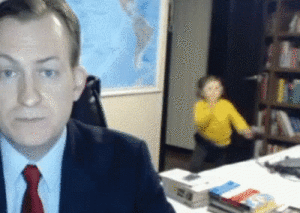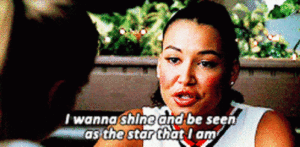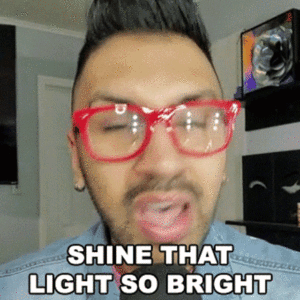Here’s a piece I wrote this winter, after seeing the Disney movie Encanto.
Why is it so important to us each to see and be seen? If it is, why do we all avoid it so much?
I just finished my second viewing of Disney’s Encanto, this time watching alongside my teenager for his first viewing. I was impressed by his quick insights (or maybe it was just a predictable Disney plot) into how each family member was struggling to live up to the expectations their family had of them.
Trapped by Expectations
Many of the characters felt pressured to refrain from anything that might not fit their family’s expectations. They needed to hide parts of themselves that didn’t fit their family’s narrative, as they felt like their other values, skills, or desires weren’t seen or appreciated by their loved ones. They feared they would have no value to their families if they weren’t the things their family expected them to be.
“What could I do if I just knew it didn’t need to be perfect? It just needed to be?”

One character laments the fact that she cannot relax and live in the moment: “But wait. If I could shake the crushing weight. Of expectations, would that free some room up for joy? Or relaxation? Or simple pleasure?” (Cue her dreams of relaxing and joyfully soaring on a unidonkey).
Another discovers she can create beautiful things when freed from the constraints of her family role: “What could I do if I just knew it didn’t need to be perfect? It just needed to be?” Of course, one member leaves the family to go into hiding due to feeling no one appreciates him or his unexpected gift. But (spoiler alert!) I won’t talk more about that, no no no.
Lay Down Your Mask
Every day when coaching clients, I see this dynamic of hiding parts of yourself that may not match what people think of you. My coaching clients seem scared to highlight anything outside others’ narrative of them. They are afraid to place anything in their LinkedIn profiles beyond what they’d list on a resume, afraid to “overshare” on social media about any topic beyond their stated area of expertise.
The goal of social media is to connect with others and share who you are (your “special sauce”), your values, skills, accomplishments, dreams, and goals.
Now that I coach British and Swiss attorneys, I hear that fear a lot, and “brash American” and “sharing like Oprah” has been said often in reply. I have found lawyers are especially reluctant to unbutton their top button or suit jacket and show people who they are beyond being great attorneys.

The goal of social media is to connect with others and share who you are (your “special sauce”), your values, skills, accomplishments, dreams, and goals. When you don’t show anyone who you are, why you do what you do everyday, and what makes your heart sing, no one can get to know you. People can’t feel connected to you if they don’t know you. If you don’t include any of what makes you who you are in your profile, or if you don’t share about things that are important to you personally, and especially if you shut your door, put your head down, and work your 80 hours, no one will feel connected to you.
If you don’t feel engaged and fully seen for who you are, including all of your skills, strengths, interests, gifts, and more, you won’t want to spend so much of your time with your coworkers.
COVID pushed those masks aside and laid bare what we had tried to hide–that we have lives outside of being devoted employees. We have other roles (parents, children, pet owners, entrepreneurs, caregivers) and once we could see in each other’s living spaces, the jig was up. Our real lives were laid bare as kids, dogs and cats, spouses or partners all wandered into frame from time to time. It happened to us all-CEOs, secretaries, law firm partners, accountants; no one was immune.

Once we all were seen, some of us craved it and decided to find roles where we could not only be fully seen on a regular basis, but where that was welcomed. Enter the Great Resignation (or Great Reset or Great Reflection or Great Reorientation–whatever we’re calling it this week). If you don’t feel engaged and fully seen for who you are, including all of your skills, strengths, interests, gifts, and more, you won’t want to spend so much of your time with your coworkers. Generally we spend more time with coworkers and clients than with our loved ones. Thine CEO and cofounder Sang Lee says feeling seen is one of the things that most motivates employees.

Women are Struggling to Lay Down Their Masks
But some people did not embrace laying down their masks. I coach clients everyday who hesitate to show authentically who they are. Sometimes, they don’t even know–they’ve never stopped to think about what makes them who they are, why they have chosen the path they have, what they really want to do or cultivate in their lives, and what they offer the world (their special sauce).
It’s more often my female clients who are afraid no one wants to know who they are beyond the roles they already play. They fear their accomplishments are not worthy enough to talk about. Imposter syndrome is crippling so many women, especially women of color, and keeping them from fully connecting with others. Women often have a Greek chorus in their head telling them what they are doing is not enough, it is not as much as others are doing, and they’d be taking up space if they shared it.
So my social media coaching has really morphed into more of leadership coaching–understanding who you are, what drives you, and how to share your voice with your colleagues, clients, potential clients, leadership, and the world.
I encourage you to embrace fully showing the world who you are and what makes you the special person you are.

Raise your voice to be seen. At the end of Encanto, the main character’s family tells her they see her: “We see how bright you burn. We see how brave you’ve been….Open your eyes. Abre los ojos. What do you see?”
The main character responds that she too finally sees herself: “I see me. All of me.”She’s an animated character, but you deserve no less. Start sharing who you are with your managers, colleagues, clients, and the world.
Don’t hesitate to use social media to let people glimpse the things you care about and are passionate about–your special sauce.
We want to see you, and we want you to feel seen.



